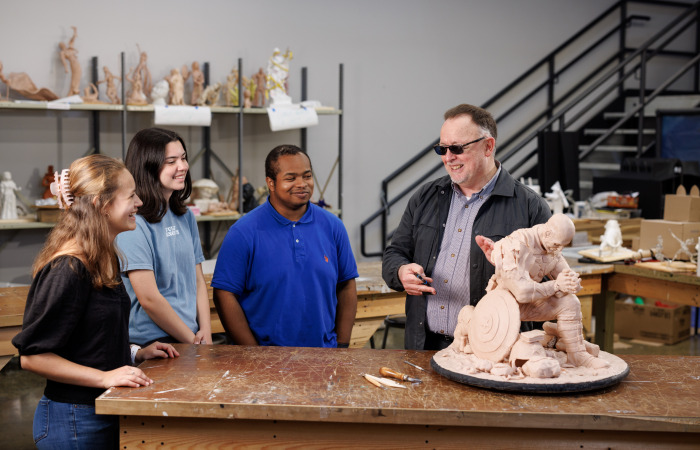Cooperation With Colleagues Transforms the Classroom and Increases Your Faith
As iron sharpens iron, so one person sharpens another. — Proverbs 27:17
Collegiality is the idea of having a shared vision and a shared responsibility for success. Academic collegiality, indeed, derives its meaning from a biblical perspective (Ecclesiastes 4:9–12 and Proverbs 27:17). It’s far more than teaching with colleagues in the same area of expertise; it means working across disciplines and building on expertise in collaboration with others. In the Christian context, it also involves the joy of a shared mission. The team effort I have been engaged in for over 10 years at Liberty University has been transformative, keeping my passion for teaching alive.
In 2010, newly hired, I was excited to be in a Christian institution but anxious about whether I could adequately convey my expertise in the classroom. I was a newly minted visiting assistant professor at Liberty University School of Law, and one of my first courses was tax law. My challenge was to make tax law interesting, and my simple solution was to collaborate with other professors. I received teaching resources and notes from previous classes. They never stopped checking on me to be sure that I had what I needed to succeed in my first year. The most important support was their prayers and encouragement. That first year made me realize that when God sends you somewhere, He also provides through the people you work with. Working with students and colleagues transformed my classroom experience.
This principle bore fruit again in Spring 2022, when together with a Helms School of Government colleague (a former director for Russia Affairs at the National Security Council), I co-led a White House Principals Committee Meeting on Russia simulation exercise. The joint effort revealed the extraordinary benefits of working together to expand classroom learning. The multidisciplinary experience of working with faculty from over five schools on my university’s Fulbright Committee has also allowed me to share in the benefits of cooperation. Since 2016, and after five years of exploring and working together, the committee has successfully recruited over 15 students and six faculty members who have traveled to five continents to serve. Collegiality not only transforms individual learning in the classroom but also leads to institutional success.
A dream becomes a reality when we surround ourselves with people who have the same vision, purpose, and aspirations. We are more efficient when we work together, and great things are achieved beyond all individual efforts and dreams. An obstacle shrinks when we are surrounded by the right people. They can be our ray of light in the darkest of times and the key to opening up new possibilities (Matthew 5:16). The most effective solutions are often discovered, solved, and promoted by more than one head.
Beyond intellectual advancement, I have also experienced collegiality that has helped me grow in faith. I can unashamedly pray and seek prayer support from people I work with, which makes me hungry to be at work. It is a blessing to be at an institution where normal conversations end with “I am praying for you” or “Please pray for me!” Carrying each other’s burdens and not being ashamed of the Gospel creates an environment of protection and trust. And the prayer of a righteous man avails much (James 5:16). The Bible tells us that when two or three gather to pray together and believe in His name, our work is successful and effective. That, too, is collegiality.
Ecclesiastes 4:9, 12 tells us that “Two are better than one because they have a good return for their labor. If either of them falls down, one can help the other up … A cord of three strands is not quickly broken.” Academic and personal success requires teamwork, not just individual effort. To work alone and succeed alone is to think like a child. The Apostle Paul wrote: “When I became a man, I put the ways of childhood behind me” (1 Corinthians 13:11). I have embraced the principle of working with colleagues as my tool for success and as the key to accomplishing our mission.

Environmental headshot day on May 1, 2019. (Photo by Luke Bobbey)
Edna Udobong is a professor in the Helms School of Government and Liberty’s Fulbright Program Advisor and Scholar Liaison. She holds LL.M.s from the University of Lagos (Nigeria) and Harvard Law School. She received a 2008-09 Fulbright Scholarship to the University of Lagos and a 2013 Fulbright Specialist Scholarship to the University of Witwatersrand, Johannesburg, South Africa.




